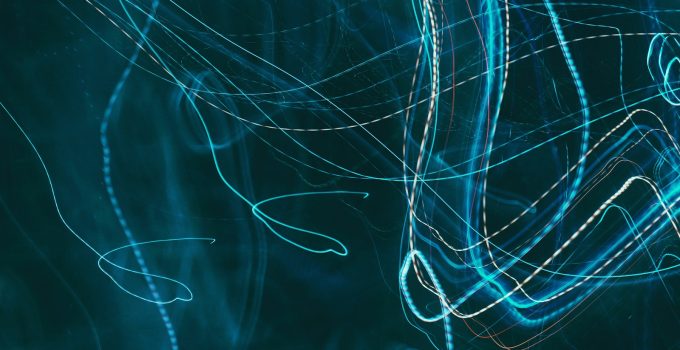The concept of wikis—collaborative platforms for shared knowledge—has long been associated with centralized structures, most notably Wikipedia. However, as our technological frameworks shift toward decentralization, new opportunities arise to reimagine how knowledge is stored, accessed, and maintained. Decentralized wikis hold the potential to revolutionize public education, digital preservation, and civic participation by leveraging peer-to-peer networks, blockchain-based storage, and permissionless collaboration.
In an age marked by algorithmic bias, censorship concerns, and monopolized platforms, the need for resilient and transparent information ecosystems becomes urgent. Decentralized wikis are emerging as one of the most promising pathways toward ensuring that human knowledge remains accessible, editable, and free from centralized control.
Distributed knowledge as infrastructure
Distributed knowledge networks rely on the idea that data and authority should not be held by a single server or organization. Instead, information is mirrored across many nodes, ensuring redundancy and robustness against outages, data loss, or manipulation. Platforms like IPFS, Arweave, and Dat are examples of infrastructure that make this possible.
Whereas traditional wikis rely on a central database, a decentralized wiki stores its content across multiple machines, often using content-addressable storage. This means that each piece of content is identified by its hash, not its location—an idea that aligns closely with the structure of blockchain technology.
This shift in architecture creates a foundational layer that is:
- Tamper-resistant
- Self-healing
- Persistent beyond any single entity’s lifespan
These qualities are essential if the goal is to preserve public knowledge for generations—especially in times of political unrest, climate catastrophe, or internet censorship.
Permissionless collaboration at global scale
One of the primary benefits of decentralized collaboration is its openness. Unlike traditional editorial systems, which may limit participation through account approval, moderation layers, or cultural gatekeeping, decentralized platforms can support models where anyone with internet access can contribute. This can help:
- Amplify voices from underrepresented regions
- Accelerate open education across language barriers
- Crowdsource translation, local context, and culturally relevant examples
By building on top of version-controlled systems like Git and integrating with tools such as visual Git interfaces, decentralized wikis allow contributors to fork, merge, and resolve conflicts in a manner familiar to open-source developers—now applied to knowledge sharing.
This also means that localized forks of a wiki can evolve independently. Communities can shape their own knowledge repositories, tailored to specific needs, while still referencing and syncing with a broader global knowledge base when desired.
Archival permanence and public history
The long-term preservation of knowledge is often at odds with the business models of centralized platforms, which must consider profit, server costs, and legal liabilities. In contrast, systems like Arweave offer a “pay once, store forever” model that radically shifts how we think about digital permanence.
When combined with decentralized wikis, this approach enables the creation of public records that:
- Cannot be retroactively altered without consensus
- Remain accessible even if the original site is removed
- Support provenance tracking of edits and sources
This permanence is ideal for archiving oral histories, academic research, open government documents, and endangered cultural knowledge. When integrated with metadata standards and linked data formats, these wikis can also connect meaningfully with the broader semantic web.
Challenges and trade-offs
Despite the promise, decentralized wikis come with notable challenges. Chief among them is moderation. Without centralized control, how do we manage spam, disinformation, or harmful content? Some approaches include:
- Trust-based reputation systems
- Community-elected curators
- Automated moderation with cryptographic proofs
Another hurdle lies in onboarding and usability. For non-technical users, interfacing with distributed storage, managing cryptographic keys, or resolving content conflicts may be overwhelming. Building intuitive tools with friendly UIs, like those seen in modern note-taking apps or Markdown editors, is crucial to mainstream adoption.
Scalability is also a concern. Systems like IPFS may struggle with large datasets or high-frequency edits, which can impact performance and user experience. However, hybrid models—where decentralized backends are paired with fast, centralized frontends—may provide a transitional path forward.
Use cases beyond education
While public education is a natural application, the implications of decentralized wikis stretch far wider. A few compelling domains include:
- Scientific research: Collaborative, transparent, and reproducible documentation of experiments, with peer-reviewed branching.
- Civic tech: Living documents for open laws, local government plans, or community standards.
- Activism and journalism: Counter-censorship publishing, whistleblower documentation, and investigative research.
- Open hardware and permaculture: Detailed blueprints and guides for off-grid tools, farming methods, or alternative energy systems.
These applications align closely with movements toward post-scarcity thinking, mutual aid, and open-source autonomy.
The role of identity and provenance
With decentralization comes the need for a new understanding of identity. Instead of user accounts managed by a server, contributors can use cryptographic identity, such as a wallet address, PGP key, or decentralized ID.
This enables:
- Signed commits for edit attribution
- Proof-of-authorship for knowledge contributors
- Anonymous or pseudonymous publishing where safety is a concern
When provenance is embedded at the protocol level, wikis can trace the history of ideas, edits, and sources in a transparent and verifiable way. This is particularly important in an era of misinformation and deepfakes. Provenance-based knowledge offers a form of trust that’s rooted in technology rather than authority.
Bridging protocols with traditional platforms
For decentralized wikis to reach the mainstream, they must integrate with existing platforms and protocols. This means creating plugins, APIs, and translation layers that work with:
- WordPress
- MediaWiki
- Creative Commons
- ActivityPub
For example, one could imagine a system where edits made in a WordPress plugin are pushed to a Git-based wiki, mirrored on IPFS, and broadcast to followers via ActivityPub in real time. This interoperability would allow creators and educators to participate in the decentralized future without abandoning the tools they already know.
Toward a federated library of humanity
Ultimately, the goal is not to replace Wikipedia or other centralized platforms but to offer a complementary system—a federated knowledge network that empowers individuals and communities to preserve, share, and remix what they know.
Such a system would allow each community to build its own canon of knowledge, while still linking to a shared backbone of global contributions. It would enable resistance to censorship and surveillance, and provide tools for future generations to learn from the past—without relying on any one company or government to safeguard that knowledge.
Imagine a world where:
- A teacher in rural Alaska publishes local knowledge on food preservation
- A youth collective in Nigeria translates climate science into local dialects
- An independent historian archives suppressed texts without fear of deletion
All of this could be stored, shared, and linked through a mesh of decentralized wikis, helping to democratize access to knowledge in ways we’ve never seen before.
Conclusion
Decentralized wikis are not a silver bullet, but they are a powerful tool in the evolution of how humanity stores and shares knowledge. They challenge the assumptions of centralized editorial control and open up new pathways for collaboration, persistence, and inclusion.
As new tools and protocols emerge, the ability to shape our own informational environments becomes more accessible to everyone. This is not just a technical revolution—it is a cultural one, where the stewardship of knowledge shifts from corporations and gatekeepers to everyday people.
The path forward will require experimentation, education, and community-driven design. But the potential is clear: a more equitable, more resilient, and more open future of knowledge—built together, and built to last.



